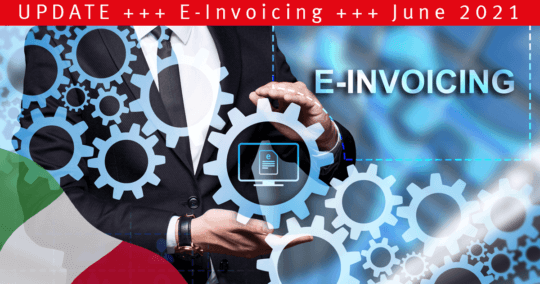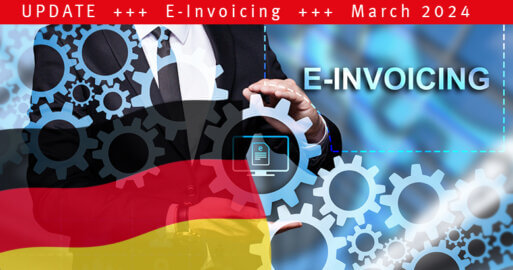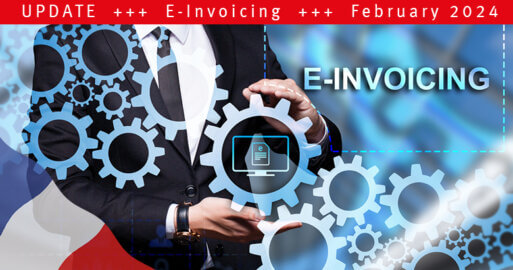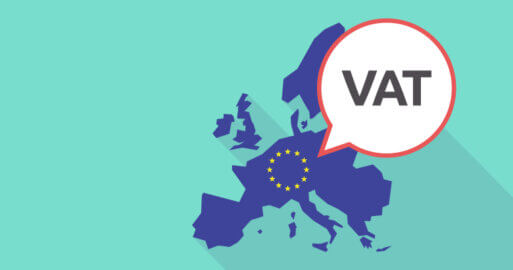Italy – New E-Reporting rules coming into force

+++ Update of January 11, 2024: New version 1.8 of the technical specifications will be in force from February 1, 2024
What are the main changes in this latest version 1.8 of the FatturaPA Technical Specifications? Who might be affected by these updates? And will they have a significant impact on your business and e-invoicing solutions – compared to updates published in the past?
Main changes of the new version 1.8
- New encoding in the existing data block: The coding of the OtherManagementData block (blocco ‘AltriDatiGestionali’) for agricultural producers in special regime has been updated. There are new options to manage some specific data: ‘ALI-COMP,’ ‘NO-COMP’ and ‘OCC34BIS.’ We do not expect any impact on the data mappings nor on the process of exchanging FatturaPA with the SdI platform in Italy.
- New validation rule for invoices with invalid declaration of intent: In order to report the reference to a declaration of intent into the invoice, the RiferimentoTesto element, under AltriDatiGestionali, must be filled out by reporting the reception protocol of the declaration of intent and its progressive separated by the “-” sign or by the “/” sign. We do not expect any impact on the data mappings nor on the process of exchanging FatturaPA with the SdI platform in Italy.
- Updated explanations on how and when to use the existing technical document type TD 28: For transactions to and from entities not established in Italy, the description of the country ID in the supplier master data has been integrated. Companies must provide this data element as content to the FatturaPA, if applicable to their business transactions. We do not expect any impact on the data mappings nor on the process of exchanging FatturaPA with the SdI platform in Italy.
- Country ID’s description integration for CedentePrestatore section: We do not expect any impact on data mappings or on the process of exchanging FatturaPA with Italy’s SdI platform.
Although the timeframe for the implementation of these changes seems to be tight, the impact is relatively small and only concerns specific industries, types of transactions or updated usage specifications for existing data content. SEEBURGER experts can assist you with individual impact assessments and mapping expertise.
+++
+++ Update of September 12 2022: E-Invoicing Italy: New version 1.7.1 of the technical specifications are valid from 01.10.2022
As of 1 October 2022, the new version 1.7.1 of the technical specification (in Italian) for e-invoicing “Specifiche tecniche versione 1.7.1” can be used.
This new version brings with it the following changes:
- Amendment of the XSD schema of the normal invoice “fattura ordinaria” to introduce a new document type “tipo documento” TD28 for reporting the turnover of purchases from San Marino for which paper invoices showing VAT were issued.
- Changed validation criterion for
- Error 00471 for
- document types TD01, TD02, TD03, TD06, TD24, TD25 and TD28 for normal invoices (“fattura ordinaria”) and
- Document type TD07 for simplified invoices (“fattura semplificata”).
- Error 00472 for document type TD27
- Error 00475 for document type TD28
- Error 00471 for
- On invoices containing the code 00476, a new validation leads to rejection of the invoices by the SdI if the supplier and customer have a code other than “IT” in the fields “Country of tax identification number of supplier and recipient/buyer”.
- Introduction of a new coding for the AltriDatiGestionali block to indicate on the invoice the information on the regulation of the tax to be paid when paying via the F24 payment form and to state on the invoice the reference to the correct tax period of the transaction for transactions extracting goods from a VAT warehouse.
- Updated description for
- Natura code N7
- Error code 00401
- Error code 00430
- Error code 00473
- Error code 00475
+++
+++ Update of 20 December 2021: FatturaPA for cross-border invoice officially delayed to 1 July 2022
The mandatory use of FatturaPA for cross-border invoice transactions has been officially delayed to 1 July 2022. Esterometro is going to be abolished by end of June 2022 instead of December 2021.
Please see for reference Official Gazette no. 301 of 20 December, 2021, Law no. 215 of December 17, 2021, converting, with amendments, the Tax-Labor Decree (Decree Law no. 146/2021) by providing, in paragraph 14-ter of article 5.
+++
+++ Update December 2021: FatturaPA for cross-border invoice likely to be delayed to July 2022
Mandatory use of FatturaPA for cross-border invoice transactions to be delayed to July 2022. Esterometro to be abolished by end of June 2022 instead of December 2021. Official decision is expected to be coming soon.
+++
New Italian Budget Law no. 178/2020 requires cross-border invoices to be reported to SdI in FatturaPA XML standard, as of 1st January 2022.
So far, it’s only been necessary for domestic invoices to go through Italy’s SdI platform, while cross-border sales and purchase invoices have had to be reported to Esterometro on a quarterly basis. This will change at the beginning of 2022.
Update to our blog of 21 June 2021 Italy – New archiving rules postponed from June 2021 to January 2022
These new rules for cross-border transactions include a number of changes. The latest version of the FatturaPA invoice schema has added additional formats for the new reporting requirements for non-domestic, cross-border invoices. The AGID guide GUIDA ALLA COMPILAZIONE DELLE FATTURE ELETTRONICHE E DELL’ESTEROMETRO describes how to create a FatturaPA XML for various scenarios.
A FatturaPA XML, which is reported to the exchange system SdI for a cross-border invoice, is not an actual invoice. It is data which has been extracted from an invoice sent from a supplier to a buyer in the format and way they have agreed amongst themselves. This may have been a paper-based invoice sent through the postal service, or a pdf invoice emailed to a cross-border buyer.
For an Italian supplier, it may be challenging to issue a cross-border invoice at the same time as submitting the invoice data in a FatturaPA XML file to SdI and waiting for a status response. If this response highlights errors, resolving these will have an impact on the actual invoice. Although this process has been available on a voluntary basis since the beginning of B2B e-invoicing through the SdI, it will become mandatory in 2022.
For an Italian buyer cross-border purchase invoices need to be reported to SdI in FatturaPA XML format.
When an Italian purchaser receives an invoice from a non-EU supplier or foreign intracommunity supplier – whatever the agreed invoice format and communication channel –a FatturaPA XML needs to be reported to SdI. Cross-border purchase invoices need to be issued in the FatturaPA XML Format with document types (“tipo document”) TD17, TD18, TD19 and TD20. You are able to embed the original purchase invoice in the FatturaPA XML Format, which stores the purchase invoice with the reported FatturaPA XML file. This SdI reporting process has been possible on a voluntary basis since October 2020 and will become mandatory in 2022.
What will you need to do when sending and receiving Italian invoices across borders?
- Automatically generate and transmit a FatturaPA invoice upon receiving a cross-border invoice.
- Embed the original cross-border invoice in the FatturaPA invoice (optional).
- Submit the FatturaPA invoice to SdI.
- Receive and monitor status responses from SdI and trigger corrections when necessary.
- Archive successfully reported FatturaPA XML invoices, possibly with embedded original invoices under Italian legislation.
A FatturaPA XML needs to be sent for every cross-border transaction not covered by the exceptions below, by the 15th day of the month following the month in which the completed transaction was confirmed. From January 1st 2022, Esterometro will be abolished and replaced by the FatturaPA for cross-border invoices.
Our understanding is that there is no obligation to electronically report cross-border transactions for sales of goods or services documented in a customs declaration, or for which an electronic invoice has already been issued or received e.g. an invoice a foreign supplier has send in FatturaPA format through SdI.
How can SEEBURGER help you comply with Italy’s new e-invoicing changes from 1st January 2022?
Since Italy’s 2015 mandate to issue e-invoices to public administration agencies through the SdI, SEEBURGER has been a registered technical e-invoicing intermediary, using SDICOOP web services to integrate with the SdI. Following the extension of the mandate to B2B and B2C, SEEBURGER’s E-Invoicing Service for Italy generates FatturaPA XML invoices for public and private sector and sends them to the SdI platform – independently if they are for domestic or cross-border invoices. SEEBURGER’s Italian E-Invoicing Service also enables you to receive domestic invoices from SdI.
Thank you for your message
We appreciate your interest in SEEBURGER
Get in contact with us:
Please enter details about your project in the message section so we can direct your inquiry to the right consultant.
Written by: Gerrit Onken
Gerrit Onken has been at SEEBURGER since 2010 as a product manager for software applications and for electronic data exchange services for the business sector. He focuses on solutions for SAP, electronic invoicing (e-invoicing) and innovations for digitalizing business and technical processes for globally-active customers. Originally a banker, Gerrit Onken went on to graduate in business administration, majoring in industrial management and business informatics. After working in the financial sector, he worked as a manager and project manager from 2004 to 2010 for one of the top five corporate consultancies, working with international BPOs in the banking and automotive industries.





